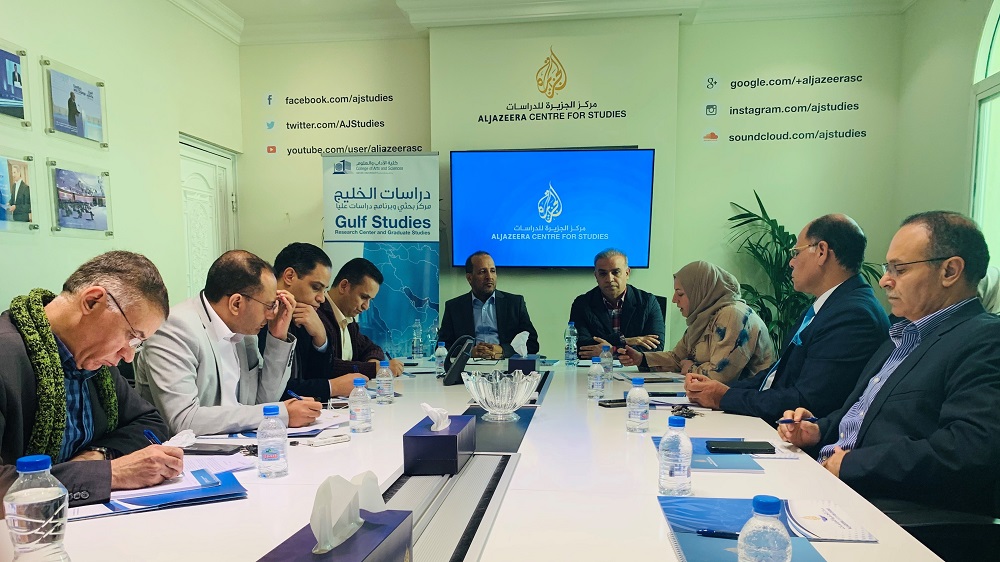
Al Jazeera Centre for Studies and Qatar University’s Gulf Studies Center held a press conference in Doha on Wednesday, 15 January 2020, to present the themes of their upcoming research conference, “A New Gulf Security System: Leaving Zero-Sum Approaches Behind,” set to take place at Ibn Khaldoon Hall at Qatar University on the 19th and 20th of January 2020.
Regarding the idea, objective and anticipated results of the conference, Dr. Mohammed Mukhtar Al Khalil, Director of Al Jazeera Centre for Studies, explained: “The preparation of the conference took place seven months ago and is unrelated to recent developments in the region, especially in wake of the killing of General Qasem Soleimani.”
Al Khalil added that the conference aims primarily to analyse the question of Gulf security and explore new approaches that take into account the interests of relevant parties. Hopefully, he said, by the end of the conference, participants will reach a pragmatic vision that provides practical solutions to issues in this dynamic region and helps decision makers come up with policies that define the features of the future.
Al Khalil also confirmed that the organisers were keen on hosting a diverse group of speakers so as to ensure the discussion of topics from various perspectives. Accordingly, there will be 25 speakers from the Gulf region and the Arab world in addition to Iran, Turkey, the United States and Europe participating in sessions over the course of two days.
On his part, Dr. Mahjoob Zweiri, Director of the Gulf Studies Center at Qatar University, stated that what differentiates this conference from others is its tackling of the dilemma of Gulf security in all of its aspects and dimensions, surpassing the traditional concept of security. Accordingly, he said, the conference is set to address communal, food and cyber security in addition to political, military and economic security.
Zweiri asserted that the conference is open to the public and aims to delve into the threats and challenges that face Gulf states and societies locally and regionally as well as present approaches that take into account constants and variables. In this regard, the sessions will discuss the significance of the Gulf system and its developments in its defining parties and relations between them, shifting to the position of the Gulf system in the international system and global economy to shed light on the ensuing costs of conflict in the Gulf region. One of the sessions will discuss the experiences of security systems in the Gulf region by analysing their contexts and the reasons behind their failures. Another session will analyse the nature of the current Gulf system, addressing its traditional and more recent threats. A third session will attend to current security approaches to demonstrate the current Gulf system’s capability of dealing with threats. Finally, the conference will conclude by discussing the features of the desired security system.